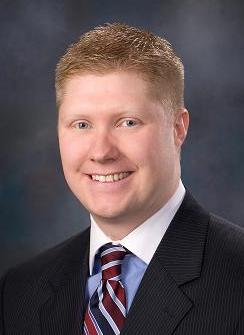I have chosen to discuss community colleges in this post because it is germane for two reasons. First, this past week was "Higher Education Week" at the Statehouse, which resulted in a lot of discussion on the issue. Second, in the upcoming weeks the House Education Committee will be faced with the important task of helping decide the fate of a potential community college in the Treasure Valley.
As I said, community colleges was one of the main topics of this past week with all of the public post-secondary institution presidents converging on the Statehouse to testify in JFAC and House Committees. What became clear, as the week progressed (I already knew, but it was reinforced) was critical role that community colleges play in education system. The main selling points, if you have yet to be converted, are low cost and high flexibility. These are benefits that can not be attained by what BSU President Bob Kustra referred to as, "senior institutions" for good, bad, or indifferent.
There has been some dissent, however, by certain legislators that a public community college is unnecessary. They first point to the existence of the Treasure Valley Community College in Caldwell -- it is an institution ran by the State of Oregon. Yes, that’s right, OREGON figured out what we needed in the Valley before we did. That is sad. The problem remains however, that as an institution of Oregon, we have no more right to change it than we would a private institution. That's called oversight, and that's one of the primary benefits to a public education system.
The next point that was made was that there are private firms offering education-like courses and they could easily be utilized. There are several things wrong with this beyond the lack of oversight, such as:
- Quality (ITT and Steven Henagar aren't known for their academic prowess)
- Cost (these places are much more expensive than a community college)
- Financial Aid (most of them don't offer it, and if they do, its very restricted)
- Transferability (because they lack quality, a respectable four year institution will not transfer the credits earned at these places)
- Leakage (because they don't transfer, their is no incentive to stay in Idaho)
The point is, no solution outside of a community college will work (I am not going to address the “community college services” argument made by ISU President Vailas). So what is the solution, or rather, how do we get there? Well, in my mind a potential solution needs to incorporate at least a few things.
- Reduce the majority needed to pass the community college taxing district from 66% to at most 60% (originally the threshold was only a simple majority).
- Ensure local control to allow the institution to be flexible and responsive.
- Provide state, local, and private funding to get “buy-in” from all that will benefit from the community college.
- State funding must also be set as a scale to the so-called “full-time equivalent headcount.” This ensures that as the college grows (or shrinks) the state funding will do the same.
I could go on forever on this, but I’d rather have you read the whole thing so I’ll stop here. Please let me know what you think!

